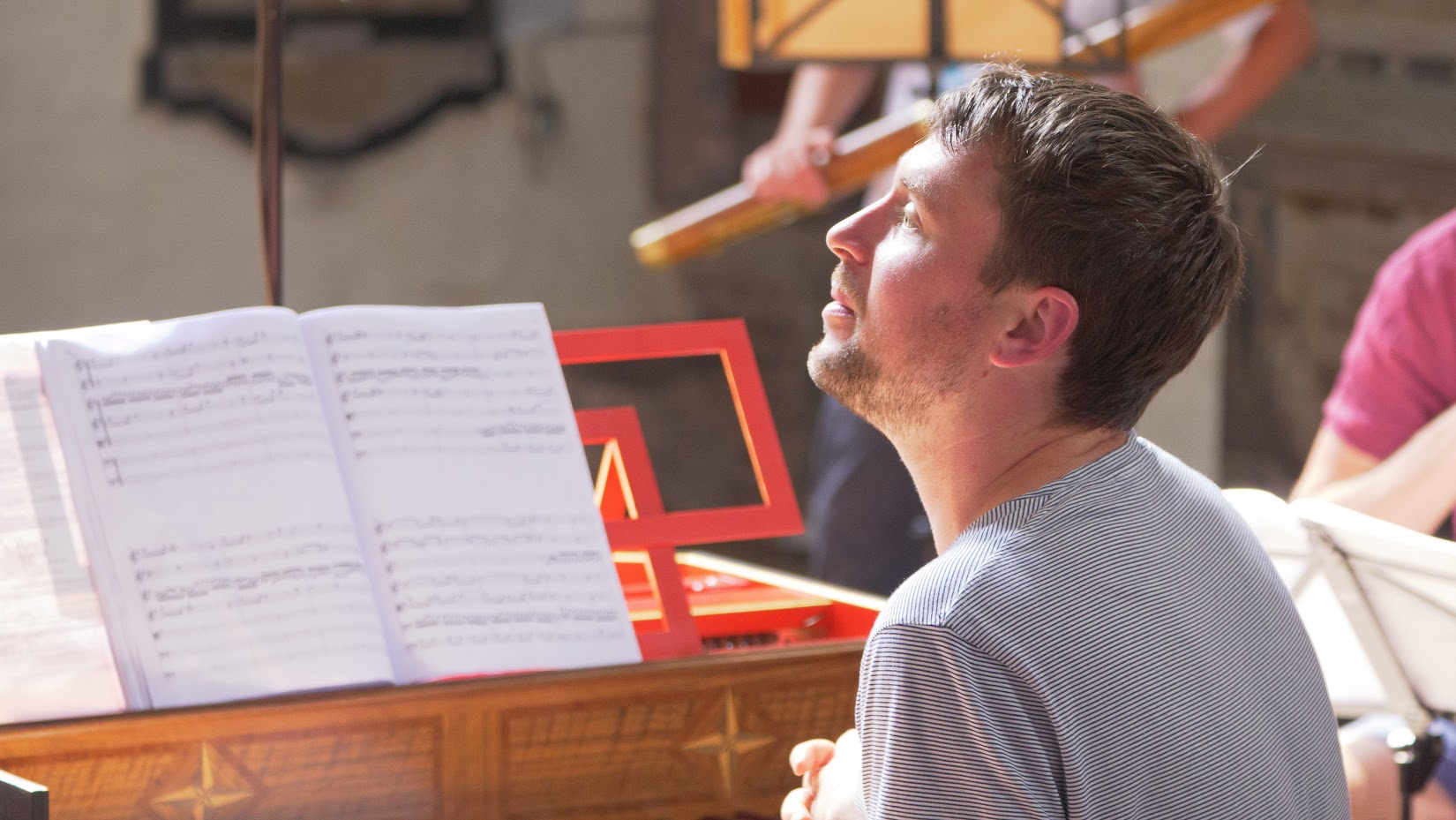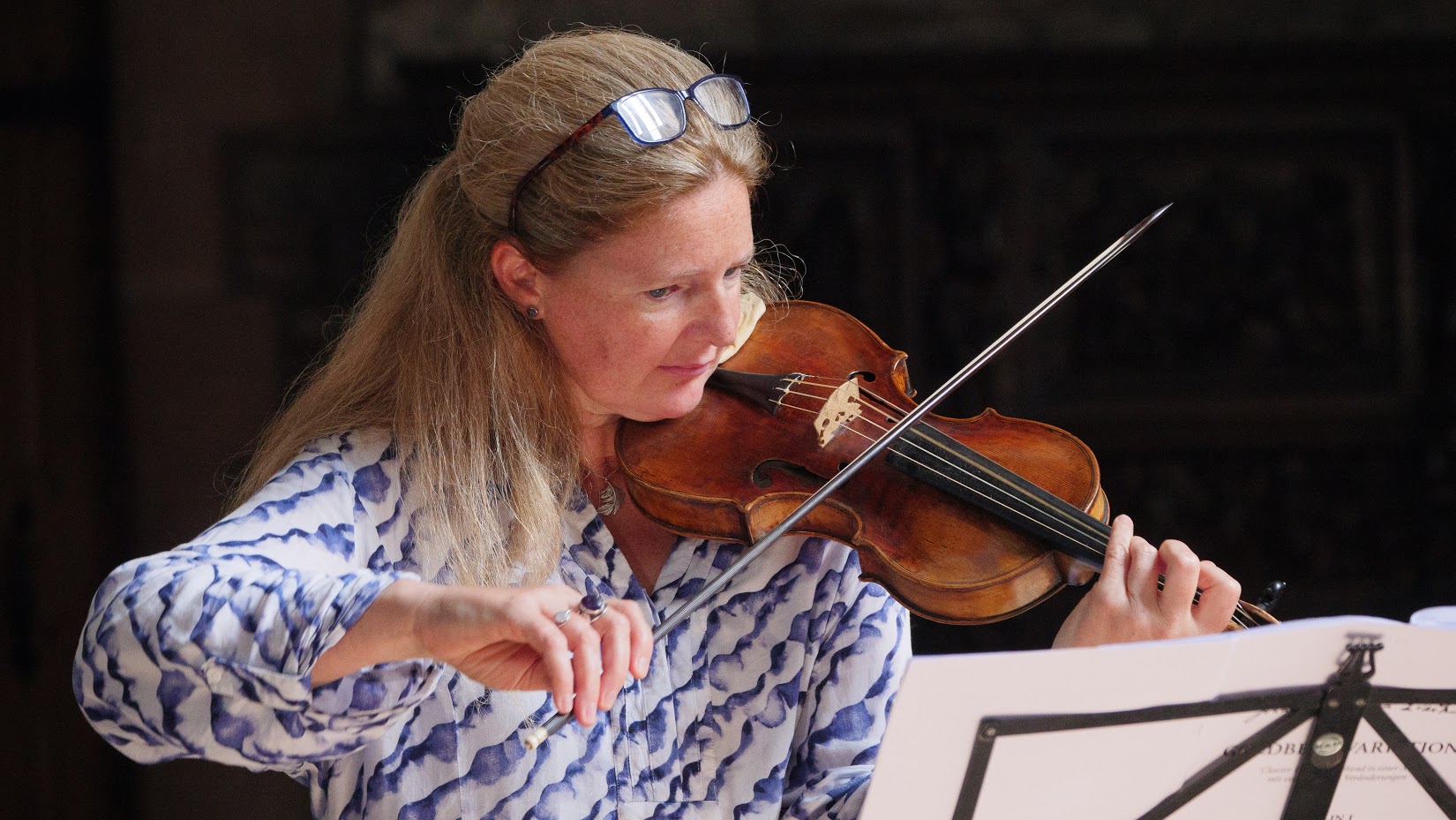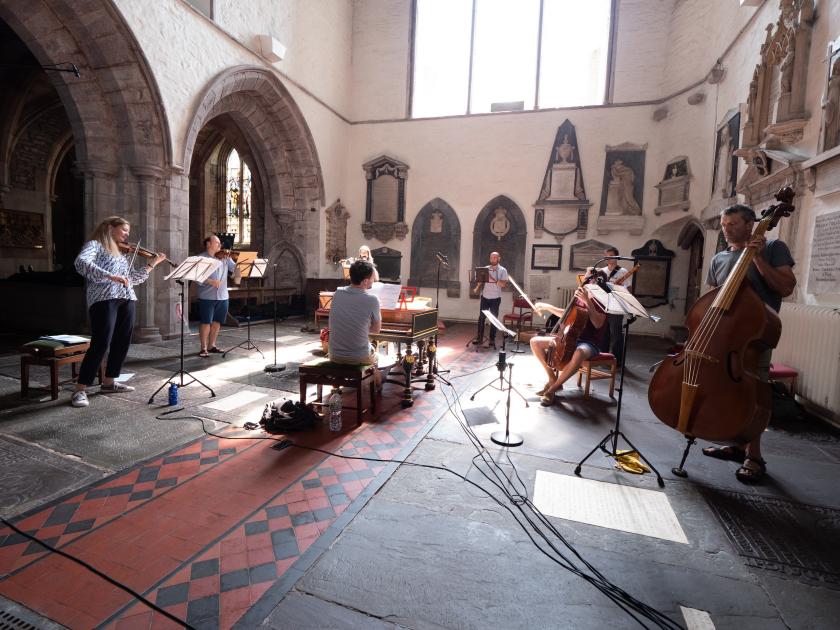Bach’s Goldberg Variations, written for harpsichord in about 1741 supposedly (or perhaps not) for a certain Johann Goldberg to play to the insomniac Count Keyserlingk, have enjoyed – or suffered – countless arrangements for other instruments, including jazz trio (Jacques Loussier), string trio with electronics, and viol consort. Busoni did a version for piano that, like many of his transcriptions, takes off into a world of its own and leaves poor old Bach standing. Chad Kelly’s new version for a chamber group of nine instruments, written for Rachel Podger’s Brecon Baroque and streamed by them from Brecon Cathedral on Saturday, doesn’t quite do that, though it takes a good many revealing, occasionally troublesome, liberties.
Harpsichord music is hard to transcribe effectively. The instrument often works with quite thin textures that sound fine on this buzzing creature but can feel incomplete in an ensemble. For instance, Bach’s very first variation is a two-part invention, and there are others like it. No 11 is in two parts with crossing lines (played on two manuals) that present a problem of range for (say) flute and violin, which was Kelly’s choice here. Other variations, with (virtually speaking) more complex textures, need filling out here and there because of Bach’s well-known habit of implying lines and harmonies but not writing them (think of the cello suites).
Kelly’s versions throughout show him to be a consummate musician (picuteed below) with a complete understanding of – to put it bluntly – what Bach left out. The arrangement adds many absent lines and harmonic details, and makes octave transpositions, but I never once detected anything that jarred or felt wrong. No Busoni-isms. This is an intelligent version that brings the work within the scope of some of our best Bach players, and to object to it on some imaginary purist grounds would be frankly absurd. It also makes the piece less austere, dare one even say less monotonous, because of the variety of colour and the sheer expressive range of these instruments, compared to the harpsichord, whose expressive range often seems hardly to stray from the fingers up even as far as the elbows.  It’s here, though, that questions arise about this new transcription. But I must be careful. The recording was made on several days in August in the south transept of the cathedral, an echoey environment in, presumably, an empty building, and with the players unnaturally spaced. Not that there were ensemble problems; I heard none. The only even remotely arguable disagreements had to do with ornamentation. For instance, in a canonic movement, where two (or more) instruments are supposedly playing in exact imitation, one might expect them to ornament the same, which Podger and co didn’t always do. But then, they would probably argue, an ornament that works on the flute might not be right on the cello. This is a built-in chamber music problem, one that doesn’t concern a harpsichordist.
It’s here, though, that questions arise about this new transcription. But I must be careful. The recording was made on several days in August in the south transept of the cathedral, an echoey environment in, presumably, an empty building, and with the players unnaturally spaced. Not that there were ensemble problems; I heard none. The only even remotely arguable disagreements had to do with ornamentation. For instance, in a canonic movement, where two (or more) instruments are supposedly playing in exact imitation, one might expect them to ornament the same, which Podger and co didn’t always do. But then, they would probably argue, an ornament that works on the flute might not be right on the cello. This is a built-in chamber music problem, one that doesn’t concern a harpsichordist.
No, the one real problem was balance. Kelly uses strings (with double bass), flute, oboe and bassoon, plus of course harpsichord continuo, excellently played here by Kelly himself. Nothing very unusual about that, you might say. Yet in movements where strings and wind combined, the strings invariably came off worse. There were even times when, with for instance flute and violin duetting, the violin was barely audible, though nearer the camera and perhaps the microphone.  When, maybe unwisely, Kelly brought in that sublime ruffian the oboe da caccia (in variation 15), it became a command performance with the other instruments nowhere. In several variations the bass felt heavy. Whether these were issues of recording, transmission or instrumentation is hard to say; probably something of all three. But either way I would furlough the hunting oboe.
When, maybe unwisely, Kelly brought in that sublime ruffian the oboe da caccia (in variation 15), it became a command performance with the other instruments nowhere. In several variations the bass felt heavy. Whether these were issues of recording, transmission or instrumentation is hard to say; probably something of all three. But either way I would furlough the hunting oboe.
The playing throughout was beyond praise. But there were specially unforgettable moments, even (in Rossini-speak) quarts d’heure. Katy Bircher’s flute in the long, profoundly beautiful variation 13 was exquisitely refined, with a perfection of line and embellishment that surely no harpsichord could beat. Leo Duarte had, shall we say, an interesting time with the oboe da caccia, but plenty of compensation on the common or garden oboe elsewhere.
Rachel Podger (pictured above) was, as ever, a live wire, energising the performance, playing as if the violin were an extension of her arm and, no doubt, her soul. The G minor variation 25, arranged straight for string trio, was exemplary, wonderfully supported by Jane Rogers (viola) and the cellist Alex Rolton. Just occasionally I missed the harpsichord. The final variation, a kind of boxing match between the two hands on three-note chords, needs that visual excitement translated into sound. The ensemble for once couldn’t compete. But it more than made up for it elsewhere.













Add comment